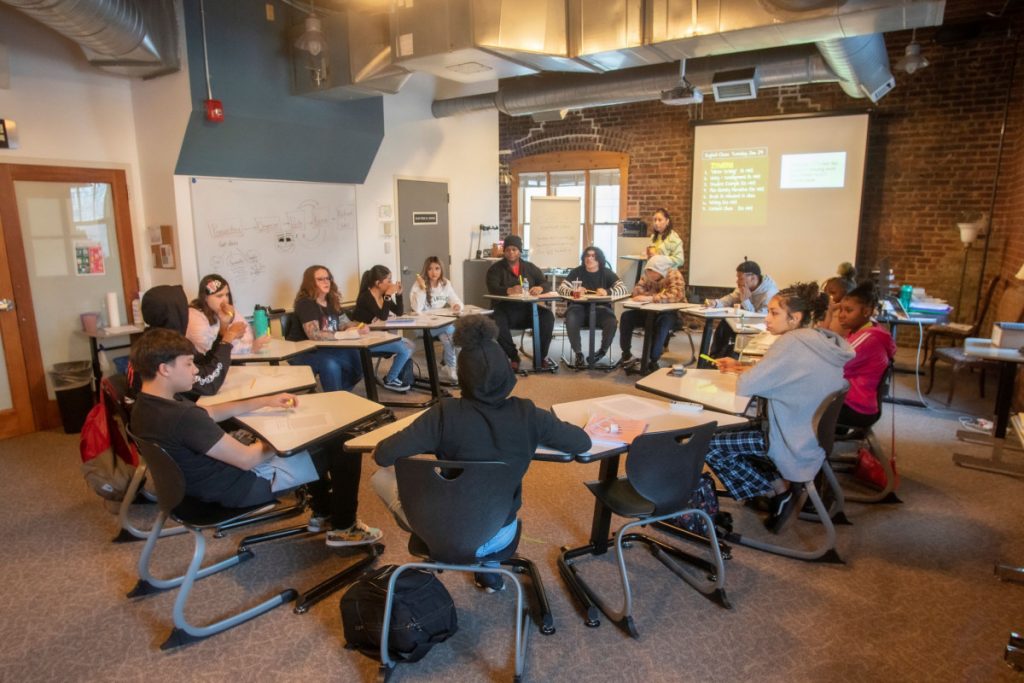Editor’s note: This article was written by David Griffith and Nathaniel Grossman, who are associate director of research and editorial associate, respectively, at the Thomas B. Fordham Institute.
The ambitious school reform initiative that Denver Public Schools (DPS) launched in 2007 was among the most effective in American history, according to a recent study by University of Colorado Denver professor Parker Baxter. From 2008 to 2019, Denver dramatically improved student achievement, graduation rates, and even enrollment.
Yet, this success has not stopped opponents from trying to restrict or even reverse the policies and reforms that produced them. In the 2019 election, candidates supported by the local teachers’ union flipped DPS’s school board, ushering in a period of backsliding. Those new board members pledged to halt the approval of new public charter schools, which were a key component of the reforms. This past June, the board rejected the applications of three new charters and justified the decision by citing the low enrollments of the city’s traditional public schools (which might be higher if more parents thought they offered a quality education).
More reversals are sure to come unless school leaders defend and perhaps even expand the policies that have given the city’s most vulnerable students an educational lifeline. So, what were those policies?
In 2007, DPS embraced a “portfolio” model under which families living within the district were allowed to choose from a variety of schools. As a result, the number of public charter schools increased dramatically. Decision-making was decentralized and district-administered “innovation” schools enjoyed more operational autonomy than traditional district schools. In addition, a more stringent approach to accountability ensured that consistently-underperforming schools were closed or reorganized. Between 2008 and 2018, 30 such schools were closed.
Dr. Baxter’s study shows that these reforms led to DPS students gaining 9 to 14 additional months of learning and a 15-percentage point increase in the district’s graduation rate—a monumental step forward, given how many other education reforms have disappointed when implemented at scale.
Charter schools played a large role in this growth. Before the portfolio model, there were fewer than 20 charters in Denver. By 2019, there were more than 50. And the jump in quantity was also matched by improvements in school quality. A 2019 study by the Center for Research on Education Outcomes (CREDO) at Stanford University found that Denver’s charters consistently outperformed the city’s traditional public schools. A 2022 CREDO study found that students in Denver charters gained the equivalent of 54 days of reading instruction and 60 days of math instruction per year compared to the average Colorado student.
Research also confirms that competition from charters has positive effects on the academic achievement of students in traditional schools, in part because (contrary to opponents talking points) they don’t actually “drain” resources from districts. In fact, two studies from our organization, the Thomas B. Fordham Institute, found that increasing the share of students who enroll in charters boosts achievement at both the district and city levels, particularly for poor, Black, and Hispanic students.
One reason charters produce these results is that they must compete for students. If families can send their children to a better school, chances are they will. Consequently, charters must provide a quality education or risk seeing their enrollments decline and possibly closing.
Until very recently, Denver was an important part of that larger story. Yet, despite the mountain of evidence testifying to the effectiveness of charters and other school reforms, the majority of DPS’s school board is working to undo this progress. Denver must stop this backsliding and preserve what’s left of the initiatives that raised student achievement, graduation rates, and enrollment.




